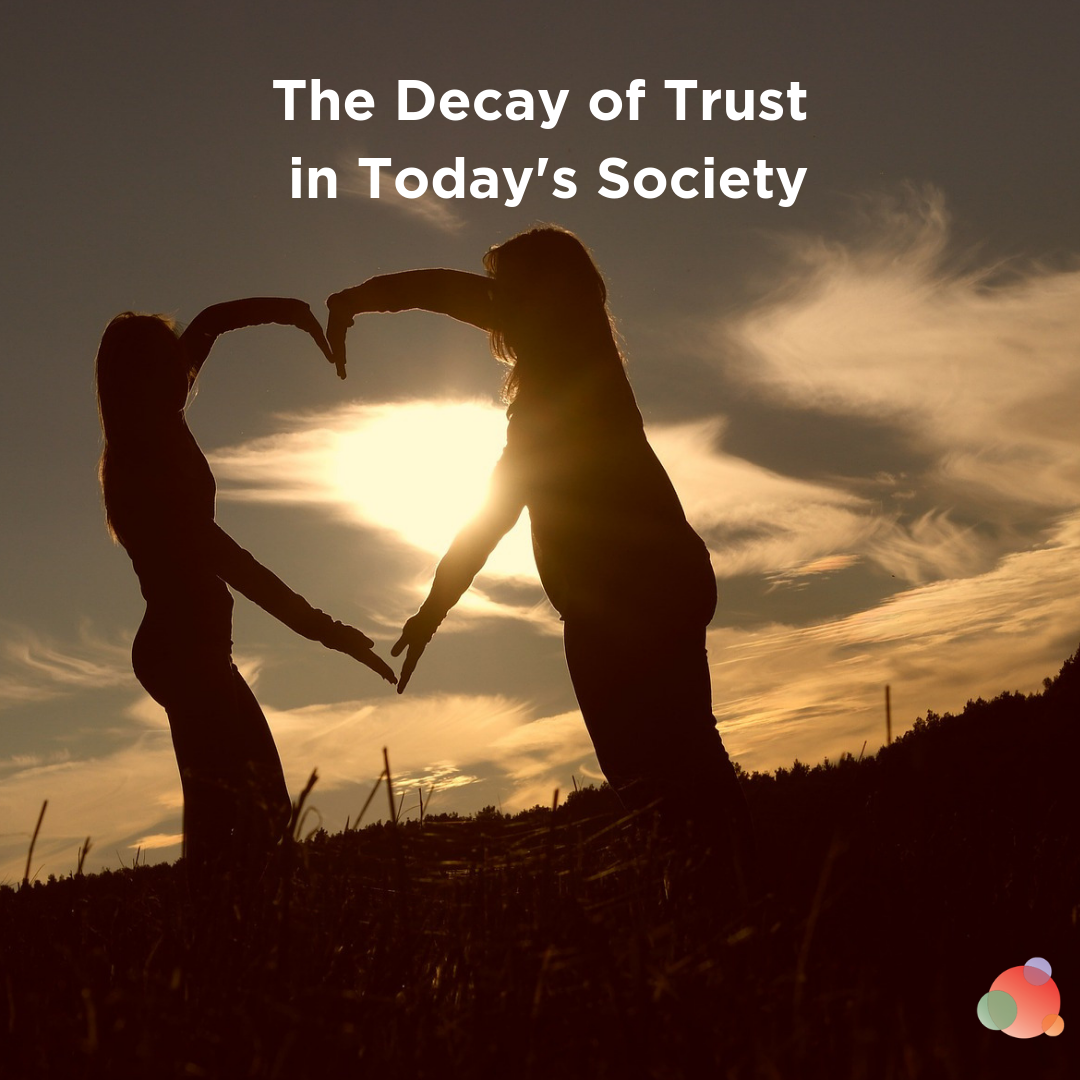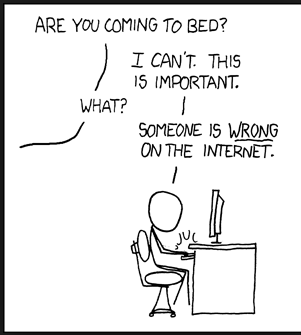 I have a friend who lives by a trust mantra that I love.
I have a friend who lives by a trust mantra that I love.
Before he participates in a conversation or discussion—online or off—he asks himself three questions: :
- Is it true?
- Is it relevant?
- Is it kind?
For “true,” we all have a tendency to embellish to make for a better story.
One of my brothers tells a story of the “sugar crisis” in the 80s that is 100 percent false, but one of the funniest stories you’ll ever hear.
He gets to work on his stand-up comedy, but he doesn’t develop trust because it’s completely fictional (which he tries to pass off as true and, unless one of us is around, no one is the wiser).
In this world of fake news and alternative facts, it’s incredibly important to ask ourselves if it’s true before we respond or share—even if it makes for a better comment or story if it’s not completely true.
If it is true—completely true—then ask yourself if it’s relevant.
Does it help enhance the conversation or provide an interesting lens?
If the answer is yes, then ask yourself if what you’re about to write or say out loud is kind.
I say this to my six-year-old all the time, “Is that helpful or hurtful?”
(Typically I have to say it when she’s said something mean.)
If the answer is “yes” to all three questions, you can participate in the conversation.
If, however, you get a no…
Is it Helpful or Hurtful?
I received an email from someone the other day.
She was responding to an email I had sent. She said:
I found this message in my spam folder. Think about why others did not reply? Bc they don’t check their spam folders like I do. Strategize your email communication.
I wanted to respond with, “Is this helpful or hurtful?” but I thanked her for her feedback and remained professional.
Also, we have really good response rates, but I guess that doesn’t count in her eyes…or it wasn’t important for her to find out if what she was writing was true.
Or, I don’t know, provide feedback that is actually helpful.
Hey, Gini! Really loved what you wrote here—it’s like you’re speaking directly to the pain I have when it comes to running my agency. I just wanted to let you know I found this email in my spam folder. I hope I’m an anomaly because your message is important for lots of us. If I can help provide some tips on how to get through spam filters, please let me know.
The first one is rude and condescending—not kind or true, but could be relevant.
The second is helpful—and more importantly, true, relevant, and kind—and might actually result in this person picking up some project work from us.
This is just one example in the multiple messages we receive every day from people who are angry or bitter or jaded.
And it’s rampant across the entire web and within our society.
It’s why we have to deal with trolls, bad reviews (that are false), mean social media comments, and more.
We’ve forgotten what it means to live by The Golden Rule.
Attack the Idea, Not the Person
Since the beginning of social media, I’ve always said, “Attack the idea, not the person.”
And, every time I see someone attack a person by posting screen grabs of what someone has done, I cringe.
While the attack may be fully warranted, people in glass houses should not throw stones.
It’s hard, particularly right now because our president can send a few tweets that antagonize people and there are zero repercussions.
But do we have to act the same way?
If you Google “trust in today’s society,” you can see we’ve been talking about its collapse for the last five years.
FIVE YEARS.
In fact, research from Rand Corporation shows:
We are suffering from truth decay as a result of political polarization and social media and because of a lack of objective facts and rational discourse.
What has happened to us?
It’s gotten much harder to discern what is and isn’t true—where the boundaries are between fact, opinion, and misinformation.
And because most of us (save for my friend and hopefully my six-year-old) don’t ask ourselves if it’s true, relevant, or kind before we comment.
Individually We Have to Rebuild Trust
We can do better. We must do better.
Not only better for us as human beings, it’s also the lifeline of our democracy, no matter your politics.
It’s really, really easy to get riled up at things you see online.
After all, this comic exists for a reason:

It’s funny because it’s true.
But I encourage you to be thoughtful about what you write, what you say, and what you share.
Follow the lead of my friend and ask yourself:
Is this true, relevant, AND kind?
If the answer is yes to all three, you may proceed.
But if the answer is no to any one of those, really re-consider what you’re about to say. what you’re about to type, or what you’re about to share.
It’s up to all of us to bring trust back, to treat other human beings with kindness, and to live by The Golden Rule.
Without our individual commitment, our society is going to get far, far worse.
And that’s not a world I want to live in nor is it a world I want my kid to grow up in.
We can do better.